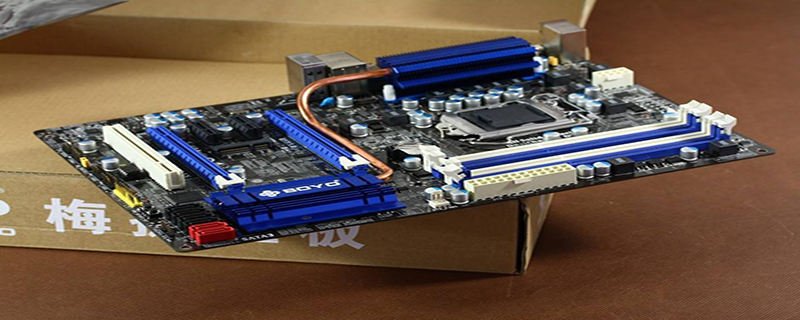Home >Common Problem >Can the 865 motherboard be connected to a sata3 hard drive?
Can the 865 motherboard be connected to a sata3 hard drive?
- (*-*)浩Original
- 2019-12-20 10:56:233590browse

865 board is equipped with ICH5 or ICH5R south bridge chip, supports SATA1.0 standard, the transfer rate can reach 150MB/S, SATA3.0 hard drive can also be used in Used in the 1.0 standard, it has little impact on hard disk data transmission, because currently few hard disks have an average data transfer rate of up to 150MB/S, and only burst transmission can achieve this transfer rate.
sata3 is the next generation upgraded version of sata2 and is fully compatible downwards. It has the same relationship as USB3.0 and USB2.0. The two are compatible with each other. (Recommended study: phpstorm)
The transmission rates of sata2 and sata3 are different. The latest sata3 bandwidth can reach 6Gb/s, which is converted to 600MB/s; and the bandwidth of the sata2 interface It is 3Gb/s, which is converted to 300MB/s.
The hard disk interfaces of Sata2 and Sata3 motherboards have basically the same appearance, but many mid- to low-end motherboards still use the Sata2 and Sata3 dual-interface mixed mode, such as the A75 of the AMD platform, and the B75, H81, and B85 motherboards of the Intel platform. SATA2 and SATA3 dual interface mixed mode, while some mid-to-high-end motherboards, such as A88, H87, Z87 and other motherboards, all have SATA3.0 interfaces.
Wanting the hard drive to obtain the best reading speed depends not only on the hard drive, but also on the hard drive interface. In other words, as long as the hard disk supports the SATA3 interface and is connected to a motherboard that supports the SATA3 interface, the hard disk of this computer will perform at its best.
Special Note: The complete English name of the new specification is "SerialATA Revision3.0 specification", the Chinese name is "SerialATA Specification Third Edition", SATA00000 Revision 3.0 is the only correct one Written in English, the abbreviation SATA 3.0 is not allowed. The word "Gen3" (third generation) is only used at the technical level and may not be used for actual product naming and marketing.
Main new features of the SATA Revision 3.0 specification:
1. Can be provided between storage units, disk drives, optical and tape drives, and host bus adapters (HBA) Link speeds of 6Gbps speed and guarantee new levels of network performance. Of course, 6Gbps (750MB/s) is only a theoretical value. In fact, the speed of information sent by the SATA interface is 600MB/s. However, due to the influence of various components of the system, the actual speed will be lower, and the differences will be great in different environments.
2. The new native command sequencing (NCQ) serial command is aimed at audio and video applications that require a large amount of bandwidth and can ensure the synchronization of data transmission.
3. NCQ management function optimizes performance through host processing and management of unexecuted NCQ instructions.
4. Improve the power management function.
5. Small low insertion force (LIF) connector suitable for compact 1.8-inch storage devices.
6. A connector designed to allow lighter and thinner notebooks to accommodate 7mm optical drives.
7. Comply with INCITS ATA8-ACS standard.
8. Fully backward compatible. When new standard products are connected to old standard products, the speed will automatically drop to 3Gbps or 1.5Gbps.
The SATA-IO organization also stated that the third version of the specification is only used for the internal SATA interface, and the updated version "SATA Revision 3.1" that is under development will focus on increasing the speed of the eSATA external interface to 6Gbps. , and solve problems such as the durability of external interfaces (number of plugs and pulls), stability and scalability under longer data lines.
The above is the detailed content of Can the 865 motherboard be connected to a sata3 hard drive?. For more information, please follow other related articles on the PHP Chinese website!

